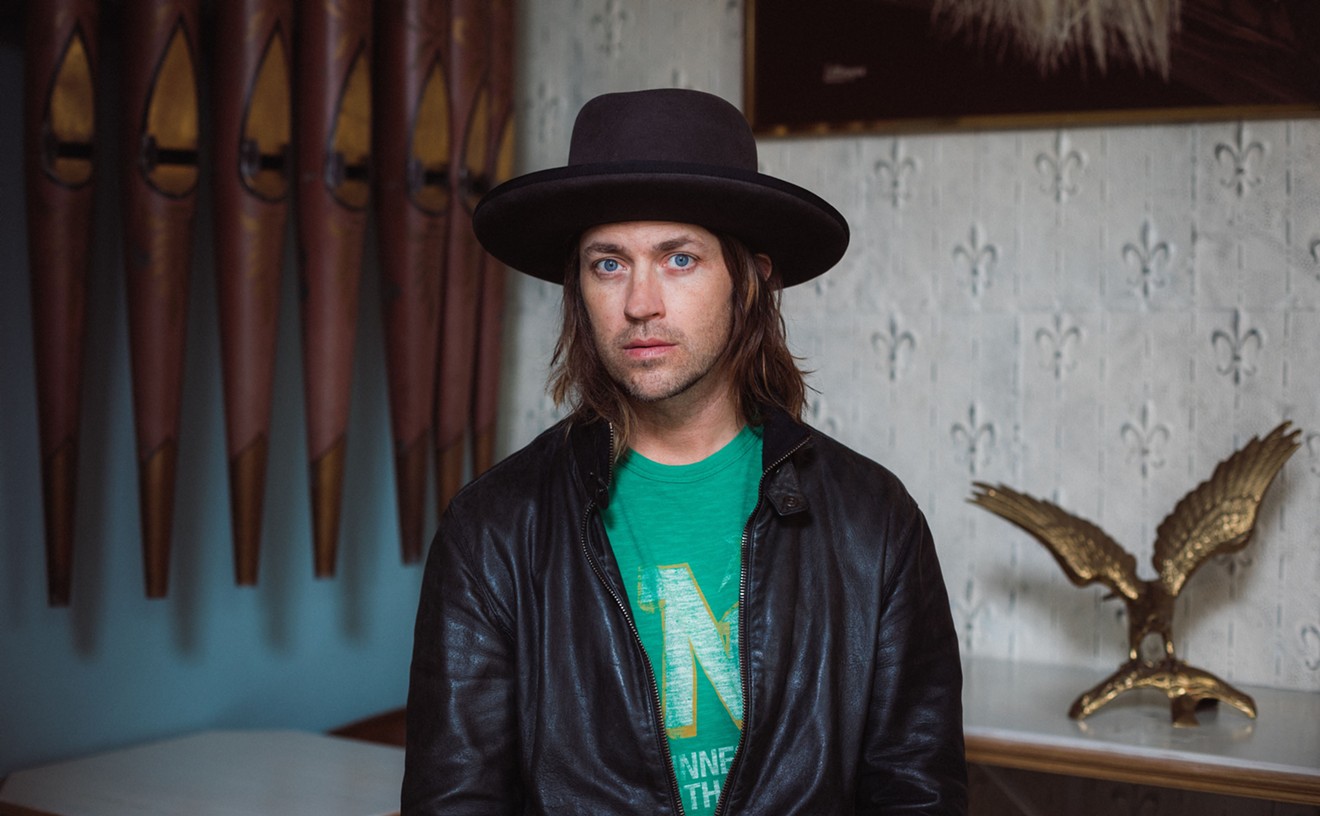--Introduction to www.joejackson.com
Joe Jackson's autobiography--A Cure for Gravity, bearing the subtitle "A Musical Pilgrimage"--ends precisely where most of his fans would prefer it begins, in 1979, with the release of Look Sharp! The reason, Jackson explains, is a simple one: From then on, his life became a matter of public record. It ceased being unique on its way to becoming cliché. "The Joe Jackson Band," he writes, "did all the things every other band in the spotlight has ever done"--toured the pub circuit, worked its way into the bigger clubs, moved from Europe to America, discovered a fondness for success and drugs, then broke up when the man for whom the band was named discovered he wanted to say different things with different people. "I stepped out of the wings and into the spotlight," Jackson explains, "and that seems to me a perfect place to end."
Of course, he doesn't end it there, not quite. Eleven more pages follow, wherein the 45-year-old Jackson documents his two failed marriages, his recent crack-up, the fact he could no longer stand to listen to music and no longer wanted any part of his own failures or successes. He writes of realizing that the only way to crawl out of the "bottomless pit" of despair was by convincing himself "Joe Jackson, Pop Star, had to die." Of course, it could be argued he died a long time ago--sometime between the release of Look Sharp! and, to be generous, 1984's Body and Soul, the second album on which Jackson proved himself worthy of his Irving Berlin fantasies (the first was the 1982 masterwork Night and Day). By the time Jackson released the pseudo-classical Will Power in 1987, the Pop Star within him had long since ceased to exist--no matter how hard he tried to rear his bald little head on such albums as Big World, Blaze of Glory, and the last-gasp Laughter and Lust.
Worse, A&M Records--now part of the Universal Music Group, which obliterated so much of the pop-music landscape--has deleted many of Jackson's albums from its back catalog. Beat Crazy, Will Power, Big World, Blaze of Glory, and the soundtracks to Tucker and Mike's Murder are out of print, and unless Jackson and his management are successful in buying them back from the label, they will remain that way indefinitely. Strangely, it is as though they never existed.
So now, he has become Joe Jackson, Author: Late last year, Jackson released his autobiography through PublicAffairs, the publishing house founded and run by I.F. Stone, author of The Trial of Socrates; Robert Bernstein, former CEO of Random House; and Ben Bradlee, legendary former editor of The Washington Post. Jackson now shares a publisher with the likes of Robert McNamara (Argument Without End: In Search of Answers to the Vietnam Tragedy), Dallasites Robert A. Wilson and Stanley Marcus (American Greats), and William Greider (Fortress America: The American Military and the Consequences of Peace). The book, not surprisingly, has received little notice (I discovered it on the Bookstop shelves, its cover slightly torn). Of course, the same could be said of so much of Jackson's recent output. By the time of last year's classical-gas Symphony No. 1, which featured the likes of guitar noodler Steve Vai and jazz trumpeter Terence Blanchard, even the most devoted fan had lost interest.
Joe Jackson, Author, is an excellent storyteller obsessed with the details; if the man were to wash his car, most likely he would use a toothbrush and a nail file. A Cure for Gravity begins in the ass-end of the music business, with Jackson and one of his first bands playing a small bar, trying to keep from getting the sense beaten out of them. It tells the tale of a classically trained musician trying to keep his head above the toilet water of every water-closet club in England, including the Playboy Club in Portsmouth. It documents his days spent in Koffee'n'Kreme, Arms and Legs, and every other lounge-lizard band no one ever heard of long enough to forget.
His book is the tale of the Everyband writ in plain, beautiful, funny, poignant language; it's a confessional only when you stumble across the passage in which Jackson documents his influences circa 1977. "My singing was still insecure, but it was getting better," he writes. "At this point it was very much influenced by Graham Parker, with echoes of Donald Fagen. Oh well. You have to start off by imitating someone." And for the record, he no longer minds the Elvis Costello comparisons; in fact, he now finds them quite flattering.
The young musician will find A Cure for Gravity insightful, a witty compendium of to-dos and to-avoids; the veteran will find the book reassuring, as even the successful old pro is wracked with doubt and insecurity. But it's far more than a music fan's primer. It is, in the end, a rather touching tale about a man who makes peace with his father just before his death, learning to communicate with his dad the only way he knows how--not through words, but through music. "I played Beethoven, Mozart, Chopin, the old pub songs I'd played at the Wicor Mill, the ragtime I'd played at the Admiral Drake, the standards I'd played at the Playboy," Jackson writes. "I wished I could be in two places at once, because both my mother and my dad's nurse told me that when he heard the music, his face lit up, and he seemed to be at peace. It's pretty hard to hold on to any lingering resentments after that."
Were the book a work of fiction, no doubt it would have been hailed as the majestic debut of a promising young writer able to tell a poignant tale while keeping the maudlin at bay. (For a look at how not to write such a book, read Camden Joy's new Boy Island, a smug and charmless fiction about the author's days spent playing with Cracker.)
At times, Jackson writes of his musical career as though it's over, past tense ("it was an attempt to connect"); when he wrote this book in 1998, he most likely thought it was. He had been dropped by his longtime home at A&M, then again by Virgin, only to be picked up by Sony Classical when no one else had any interest. He then turned out Symphony No. 1, which came and went like a summer shower. It might as well have been released at the Nice Price.
But a funny thing happened to Joe Jackson on the way to the cutout bins: He stopped running from his past, turned around, and embraced it like a long-lost lover.
This week, Sony Classical--in partnership with Jackson's own label, Manticore--releases Summer in the City, a live-in-New-York disc featuring Jackson, bassist Graham Maby (a member of the original Joe Jackson Band), and drummer Gary Burke (around since Body and Soul). There are no string sections, no background singers, no guest guitarists better suited to Ozzy Osbourne tours; it's just Joe and the boys, back to basics. The album plays like an expurgated overview of his career. It ends at the very beginning, in fact, with "One More Time," the first track off his first album. The song, about a lover who refuses to believe his girlfriend's about to leave him, sounds nothing like a vestige; stripped of its punching guitar chords, it has lost none of its force, none of its glory.
Some of the set list looks as it might have in 1976: The disc opens with a playful cover of the Lovin' Spoonful's "Summer in the City"; it features the prerequisite Beatles cover ("Eleanor Rigby"), the Ramsey Lewis Trio's "The In Crowd," and a Duke Ellington tune ("Mood Indigo"). It merges "Fools in Love" off Look Sharp! with the Yardbirds' "For Your Love," and it's a rather brilliant move--an admission of guilt, 21 years after the fact, that his first album is built upon the "echoes of the Beatles, Steely Dan, and Graham Parker," as he writes in his book. To that end, Summer in the City also contains a cover of Steely Dan's "King of the World," from Countdown to Ecstasy.
Jackson and his small, tight band also trot out some of the old songs, hits and misses, on that New York stage: "Obvious Song," "Another World," "Down to London," "Be My Number Two," "Home Town," the still-amazing "It's Different for Girls," and his last Top 20 entry, "You Can't Get What You Want." For a man who despises looking backward lest he turn to salt and vinegar, Jackson has made it a point to play to the past this go-around, and the results are bracing. Perhaps, like Elvis Costello, who refused to play any of his old songs for decades until he could no longer resist the urge or the audience's demands, Jackson needed time to step away from his back catalog to realize how vibrant it remains. This is a "live" album in every sense. It's easy to take for granted that which stares at you--bothers you, haunts you--all the damned time.
Three years ago, Jackson insisted he was off the pop for good. He was Joe Jackson, Classical Composer, chagrined that people still wanted him to be something else. "I quite often get portrayed as, you know, 'Joe Jackson thinks he's too good to give us some good three-minute pop songs,'" he told the Dallas Observer in the fall of 1997. He was, at the time, laughing like someone who didn't think what he just said was too funny. "And I'd rather have a good three-minute pop song than a bad symphony, but people are different and have different abilities, and I'm trying to be true to my own abilities and ambitions. I think when you're younger, you want to be part of the in-crowd in some sort of way. Even though I always had this reputation as being a defiant misfit or something, I think we all want to have an audience--we all want to be accepted and loved."
Two years after he said that, Symphony No. 1 was released, then ignored, then forgotten. Now, at this very moment, Jackson is working on two projects: He is playing piano, singing, and arranging on Rickie Lee Jones' forthcoming album of standards and covers. And he is in the middle of recording another album due in the fall, which will feature the likes of Marianne Faithful and three other guest vocalists, Graham Maby, and a string section. The album, as Jackson describes it, will recount 24 hours in New York City as seen through the eyes of several characters. It will be titled, of all things, Night and Day 2--yes, it is a sequel. And, no doubt, it will be accepted and loved by those who thought Joe Jackson, Pop Star, was dead. For the first time in a long time, he most assuredly is not.










